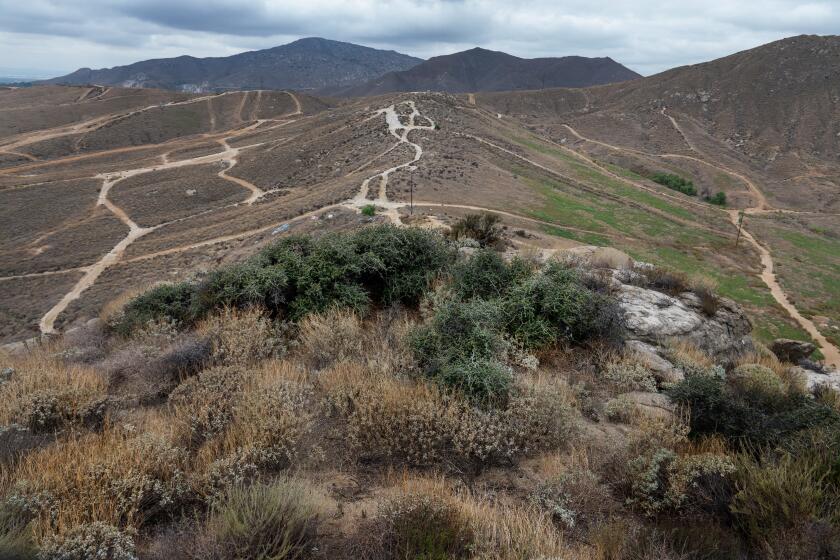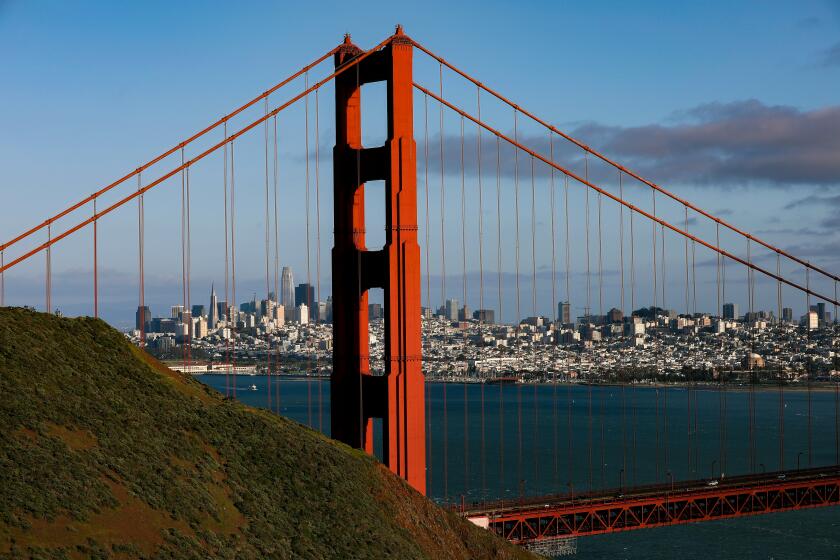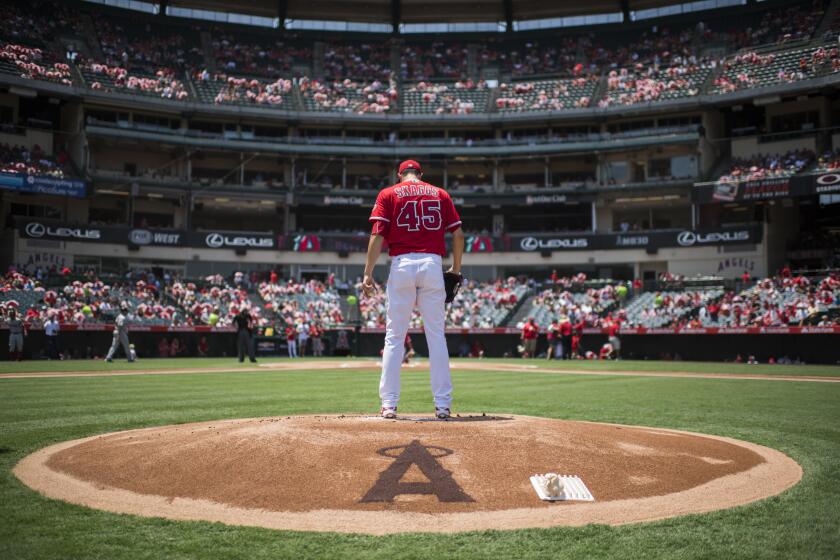Hopes Outweigh Doubts : Scientific Debate Plays to Friendlier Crowd in L.A.
The mail and phone calls for B. Stanley Pons and Martin Fleischmann keep flowing in like so much heavy water. A Florida nudist colony has volunteered itself as a guinea pig. A letter signed by The Gatekeeper of Andromeda urges them to keep up the good work.
Now, rocker-philosopher Frank Zappa, who once led a band called the Mothers of Invention, has invited the scientists to a back-yard barbecue Wednesday. He didn’t mention whether it was bring-your-own-fuel.
The quest for the cold fire of fusion has moved to Los Angeles, to a meeting of the Electrochemical Society, which in all of its 87 years has surely seen nothing like this.
On the racks in the news shop at the Westin Bonaventure Hotel sits Time magazine, and two of the society’s own look back from the cover: Pons and Fleischmann, discoverers, maybe or maybe not, of cold fusion.
From Switzerland, Spain, Italy and beyond, about 1,600 members of the society have come for its 175th meeting. Like people worldwide, they are curious whether cold fusion is folly or whether colleagues Stan and Marty have stirred up a Promethean miracle inside a jar that looks something like a milkshake blender.
As researchers, many members of the Electrochemical Society have doubts. But, as chemists they have hopes. If Pons and Fleischmann are right, not only would peace and plenty ensue in a world of limitless clean energy, but it would provide an earthier satisfaction for chemists: twitting what one called the “supreme arrogance” of physicists, who rank above chemists in the pecking order of science and consider fusion research their preserve.
Physical chemist Fritz Will of Schenectady, N.Y., is a past president of the Electrochemical Society. Last week, a Nobel laureate put a hand on Will’s shoulder and told him, “Fritz, if cold fusion were ever to be discovered, it wouldn’t be discovered by a chemist.”
Few minds, if any, were changed Monday night. Six uniformed Pinkerton guards hired by the society stood watch as most of the 1,600 participants surged into the ballroom to hear what Pons, Fleischmann and others had to say.
Later, J.L. Davidson, of Auburn University, declared, “Definitely maybe,” then added seriously, “I didn’t hear any new data” to refute criticism.
Said physicist John Houlihan of Penn State University, “I think it’s going to be a fair amount of time before you want to sell your gas stove.” If cold fusion “is true, it’ll come,” but “I don’t think they produced the nuclear fusion process. I think we’re all disappointed as well.”
On Sunday, Will was at the hotel’s front desk when his friend Fleischmann checked in, about two hours after Pons arrived--wearily waving off a reporter’s questions. Fleischmann was just back from Italy, wearing a safari jacket, and lugging a huge black case strapped across with a strip of tape labeled “Security.”
Perhaps he would like to join them for dinner, Will asked. “Casual, not to discuss fusion,” he assured Fleischmann.
It would probably be the only time this week that the subject would not be broached.
Pons and Fleischmann were not in Baltimore last week when physicists and even some chemists rained contempt on their claim announced March 23, attributing the findings to “incompetence,” even “delusion,” in the sometimes spiteful politics of science. Pons’ and Fleischmann’s supporters in turn dismissed the critics as the “Eastern elite.”
Friendlier Crowd
Even if it looks like “put up or shut up” time for cold fusion claims, Pons and Fleischmann will face a rather friendlier crowd here. “I hope we have a good discussion,” Fleischmann said Sunday, “without hysteria.”
Fusion dominated small talk as the weeklong meeting began. Some here have tried the experiment themselves, often forced to rely on the popular-press stories for the recipe. “It’ll be nice to get it straight from the research,” says Robert B. Dopp of Rayovac, “and not from the New York Times.”
Lay people may not understand the science, but cold fusion is chic. Even in Los Angeles, where heavy water commonly means two cases of Perrier, people at parties are talking fusion. The public likes doughty underdogs weighing in against any Establishment. That, and the prospect of cheap, clean energy, especially after Chernobyl and Valdez, has engrossed the world. International news teams showed up at the Bonaventure in Academy Award-sized packs, paying the $205 registration fee for Monday night’s technical session.
Pons and Fleischmann are trying to lie low. In Texas recently, Pons had to change hotels and register under a pseudonym to get some peace. At the Bonaventure, he asked Roberto the desk clerk to put through only callers who know his room number.
And scientists here bristle at hearing them called “obscure chemists.”
“They’re certainly not Carl Sagan,” but they have admirable research records, says Galen Hansen, who works at the Naval Research Lab in Washington. He met Pons at school in Utah, where Hansen’s father is on the board that will dispense the state’s $5 million in research money.
Hansen was talking with Claudio Gutierrez from Spain, where even obscure rural newspapers have carried the news of fusion. Gutierrez knows Fleischmann as an able scientist and a man of culture, who buys his wine by the case with flawless taste. “A first-class scientist, a pioneer.”
As they stood talking in the lobby, Pons went by, wearing a candy-striped shirt and a look of fatigue. A few men nudged one another and nodded in his direction, but no one approached him. “Any self-respecting electrochemist,” said Hansen, “would leave them alone right now.”




